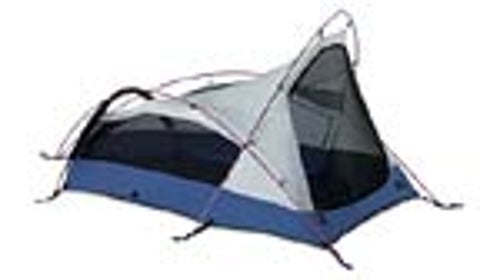How interesting. I’ve used both those tents聴or tents very much like them聴and have experienced minimal condensation problems. So I’m a little at a loss to explain this, except perhaps to say, yes, maybe you do give off more moisture than the average person. It’s entirely possible聴most people exude a pint or so of liquid during the night, a combination of moisture expelled while breathing and moisture that evaporates from the skin. No doubt, there is a classic bell-curve chart that could be derived and that would put some people on the low-moisture end, others at the high-moisture terminus.
 Thru Hiker
Thru Hiker
Still, you do offer another hint聴your comment about “frosty walls.” It’s definitely true that certain conditions lend themselves to condensation in tents, and from my own experience that’s often when it’s right around freezing. That’s because when the tent walls are cold, they’re most likely to cause the warm, moist air emitted by its occupants to condense. When it’s very cold聴below ten degrees聴it’s entirely possible for a layer of frost to form over much of the tent’s interior, especially when conditions are very still.
So ways to minimize condensation in your tent? One is to adjust doors and windows so that cold air can come in from the lower portion of the tent, and warm air can escape from the upper part. Another is to pitch the tent so its doors and windows catch any breeze, venting out moist air. And, it never hurts to pack a small camp towel, so you can do a little swabbing up in the morning if needs be.
Sweet dreams! And please applaud my restraint in not rising to your bait.


